Entries Tagged 'Uncategorized' ↓
September 16th, 2009 — books, Caritas, learning, Mauritius
Together with a team of social workers when and where I had the wonderful time working with the poorest of the poor of the Mauritian society, I discovered in practice, one of the main issues that keep these poor humans from moving to improve their conditions. They were not only the rejected of the society: they were themselves rejected by themselves. The poor Worthless! The non Humans!
The team at Caritas, after much thinking and reflection put up a program to boost up first the team of social workers to boost up their self esteem to initiate in them their capacity to take charge of themselves. The larger picture or objective was to put Caritas in the mode of Empowerment. The way to empowering the organization, Empowerment of the social workers there in and Empowerment of the poorest of the poor was the new mantra.
Looking back 5 years after, I am amazed with the work accomplished but more importantly pleased with the positive effects that the impact of the program on the society. The government through IVTB is now asking the Caritas program to run some programs. Under the new branded name ‘life skills management’ a good team of voluntary social workers are now deploying training programs to empower the neediest of the society.
At source, building up the Self Esteem of the individual is the prime objective and the initial spark. Learning to love self before sharing love. Was given to me last night by a friend an audio course by Nathaniel Braden which I found most interesting.
The Psychology of High Self-Esteem
By Nathaniel Branden
1. The Importance of Self-Esteem
Self-esteem, key to success. How poor self-esteem is a root cause of every known psychological malady. The two components of self-esteem. What growth leads to. Nurturing self-esteem. A victory in the evolution of consciousness.
2. Self-Concept Is Destiny
Self-concept defined. Withdrawing your investment in false values. Is it wise to “tap into†the child-self that dwells within? What happens when the child-self is integrated? Exploring your own feelings toward the child you once were. The story of Charles. Eva’s story.
3. The Question of Selfishness /
Living Consciously
Social consequences of high and low self-esteem. The vices of a person with a weak ego. Ethics of rational self-interest. Humoring the self. Living consciously. The core biological fact of your existence. A commitment to awareness. Examples of living consciously and unconsciously.
4. Living Consciously
The different paths people take, as illustrated by the stories five men and five women tell, taken from actual case histories. Intellectual independence. A pen and paper exercise. Taking responsibility for starting.
5. Self-Acceptance
The challenge. Why self-acceptance is required for growth. Respect for reality. The alternative to being at war with yourself. Handling fear. A way to explore the world of self-acceptance. More actual case histories.
6. Self-Acceptance (Cont’d)
A powerful technique for enhancing self-acceptance. What accepting yourself entails. Facing what you dread. Why self-acceptance is a truly heroic act. Experimenting each day with new instances of self-acceptance.
7. Assessing Behavior / Liberation from Guilt
Feeling guilty because we choose to, or because we think it’s what society expects. Valuing your judgment over that of others. Is it really guilt, or is it undealt-with resentment? Or fear of self-assertion? Behaviors that undermine your sense of integrity. Why people become attached to guilt. The internal drama.
8. Integrating Our Younger Selves
Can you embrace and “forgive†the child you once were? How current rejection could have roots in your past. What do you want for your child-self—assimilation and integration into the total self … or alienated oblivion? Ways to befriend and integrate your child-self. Meeting and dealing with your teenage-self.
9. Living Responsibly
Why you must hold yourself responsible for matters within your control. Self-responsibility as an exhilarating and empowering experience. An exercise for those serious about increasing self-esteem. What you must grasp to enjoy an active orientation to life.
10. Living Authentically
The lies most devastating to your self-esteem. What high self-esteem demands. The incorrect teachings and admonishments of our elders. Basic issues to confront for living authentically. What to do if you feel you are presently living lies.
11. Nurturing the Self-Esteem of Others
Lessons from top psychotherapists. How effective therapists conduct themselves. What we must do to understand others. Inspiring the best in others. The value of presenting them with a rational impression of reality. By honoring the self, we help build a community of persons with healthy self-esteem.
12. The Difference It Makes
Living up to the supreme value of your life. Protecting your self-esteem. Serving self-esteem by living benevolently. Six behaviors to raise your self-esteem. Why growing in self-esteem may mean leaving your comfort zone and striking out for the unknown. Expect a sense of disorientation. Why some regress. The rewards of this program.
September 12th, 2009 — Entrepreneurship, Environment, Mauritius
I just had last night the enjoyable moments of watching AMY CHUA’s interview in ‘Conversation with History’. That interview followed the publishing of her book ‘World on Fire’.
The essential message of the book is: How exporting Free Market Democracy Breeds Ethic Hatred and Global Instability.
In Mauritius, it is a fact that the economy is controlled by the 7 odd families of the same ethnic group. The present government has initiated a democratisation of the economy programme. Implementers of the program could well learn from the book and be warned of the possible dangers, -social unrest, and resentment from the majority,- whilst the 7 odd families be also be warned of the dangers and the need to dilute faster their ‘ sweet wine’ by allowing opportunities to the majority to flourish faster, in the light of what has happened elsewhere.
The book review of the book issued by the British Guardian discusses the content of the book but the interview named above supplement largely AMY CHUA points of view on the subject.
World on Fire
by Amy Chua
346pp, Heinemann, £12.99
There is a plethora of books about globalisation, many saying roughly the same thing. This one is different. It is rare, indeed, to read a book about globalisation where ethnicity is at the core of the argument. That must have something to do with the fact that the great majority of authors of such books are white and from the west. The author of this book is a Chinese-Filipina. That is also surprising because, alas, there is little Chinese writing on ethnicity either. But this book is a gem. It is not that everything Amy Chua argues is correct – it is not – but her theme is different, rich and compelling.
Her starting point is that in many developing countries a small – often very small – ethnic minority enjoys hugely disproportionate economic power. As she points out, this is not true in the west: on the contrary, we are accustomed to small ethnic minorities occupying exactly the opposite situation, a very disadvantaged economic position. The classic case is southeast Asia, where the Chinese, usually a tiny proportion of the population, enjoy an overwhelmingly dominant economic position. In the Philippines, the Chinese account for 1% of the population and well over half the wealth. The same is true in varying degrees in Indonesia, Burma, Thailand, Laos, Malaysia and Vietnam.
As Chua argues, rich and powerful minorities attract resentment everywhere: but when those minorities are ethnically different – and highly visible – then that resentment can carry a dangerous charge. “In the Philippines, millions of Filipinos work for Chinese: almost no Chinese work for Filipinos. The Chinese dominate industry and commerce at every level … all of the Philippines’ billionaires are of Chinese descent. By contrast, all menial jobs … are filled by Filipinos.” There is very little social intermixing and virtually no intermarriage. And the disparities, Chua argues, have grown more acute with globalisation and western-inspired market reforms.
Southeast Asia is an acute but by no means isolated example. Throughout Latin America, a small white elite has traditionally enjoyed both economic and political power, as well as cultural and racial pre-eminence. However, while in east Asia anti-Chinese sentiment has long been a powerful political force, in Latin America, at least until recently, there has been little ethnic – as opposed to class – resentment against the white elite. The dominance of a small white elite has long existed in southern Africa. Although the black majority now enjoys – as do their counterparts in countries such as Indonesia and Malaysia – political power in South Africa, economic power remains firmly in the hands of a tiny white elite. In east Africa, that economic elite is largely Indian; in west Africa, it is often, though in a less extreme form, the Ibos. The picture that emerges is that in much (though not all) of the developing world, economic power is largely concentrated in the hands of – to use Chua’s phrase – a “market-dominant” ethnic minority.
She argues that this disparity between the economic power of a small ethnic minority and the disadvantaged position of the majority ethnic group is a source of great political instability. Ethnicity, as we know, is potentially a highly combustible issue. “That ethnicity can be at once an artifact of human imagination and rooted in the dark recesses of history – fluid and manipulable yet important enough to kill for [Chua’s aunt, who came from an extremely rich Chinese family in Manila, was murdered by her Filipino chauffeur with the complicity of her Filipina maids] – is what makes ethnic conflict so terrifyingly difficult to understand and contain.” As Chua rightly argues, the mass killing of Tutsis by the Hutus in Rwanda in 1994 and the grievance felt by the Serbs towards the Croats in the Balkans were partly related to the economic advantage enjoyed by the Tutsis and Croats respectively, and the deep rifts that this engendered.
One of the difficulties faced by many developing countries is ethnic diversity of a scale utterly unfamiliar in the west, even the United States. Africa is the most extreme example. The major exceptions to this are China, Japan, South Korea and Taiwan, all relatively homogeneous, ethnically speaking, and very successful economically. Chua argues that globalisation has exacerbated the ethnic disparities in wealth in many countries, with the “market-dominant” ethnic minorities, for a variety of reasons, enjoying disproportionate rewards, thereby fostering growing instability. This is liable – as happened in Indonesia with the fall of Suharto and the anti-Chinese riots – to boil over at any time.
Further, she suggests that the western mantra of free markets plus democracy is ill-conceived and a recipe for disaster in such circumstances. Here the author, in challenging such a verity, not to say cliché, of modern western discourse is on powerful, if heretical, ground. The western assumption is that democracy engenders a more liberal and tolerant society, but where that society is marked by a profound ethnic cleavage, the reverse may be true. There is no doubt that the anti-Chinese riots in Indonesia reflected the sentiments of the majority; similarly, in Zimbabwe, Robert Mugabe’s desire to appropriate white farms was not least a populist appeal to the overwhelmingly black electorate. For Chua, free markets exacerbate ethnic divisions and, furthermore, democracy can act as the vehicle for a huge ethnic backlash by the majority. She believes that the idea that the two somehow form some kind of virtuous circle is wrong. Historically, this was never the case in the west: the rise of capitalism and the market long predated the achievement of democracy. And when democracy was achieved, the market was rapidly attenuated by redistribution and the welfare state, the antithesis of the kind of market policies preached and applied to the developing world by the Washington consensus.
One of the refreshing aspects of this book is not just the centrality of ethnicity, but the honesty with which Chua treats the issue. She doesn’t shy away from talking about ethnic divisions or racial prejudice. She is also thoroughly realistic about their tenacity and endurance. The roots often reach back centuries, as in the case of the Chinese in southeast Asia.
In the latter part of the book, Chua widens the geographical reach of her argument beyond the nation-state and suggests that the Middle East conflict should, in certain respects, be seen as a regional conflict between a “market-dominant” ethnic minority, the Israeli Jews, and the overwhelmingly larger Arab majority, far poorer and getting relatively poorer all the time. Finally, she considers the position of the United States in the post-cold-war world and argues that its global position is akin to that of a market-dominant ethnic minority (overwhelmingly white and perceived by others as such), which helps to explain the tidal wave of resentment against the US since September 11 and the sympathy for that event among many in the developing world.
In the western world, we are still largely in denial about the importance and potency of ethnicity. That is basically because the western world stands in such a privileged position towards the rest of the world, a situation that is intimately linked to colour: whites rarely, with the obvious exception of Jews, experience systemic prejudice. Rather they mete it out and enjoy the benefits of racial advantage. It is a pleasure to read a book that presents ethnicity as a fundamental organising principle of the era of globalisation.
· Martin Jacques is a visiting fellow at the London School of Economics Asian Research Centre.
September 9th, 2009 — Entrepreneurship, Mauritius, NLP

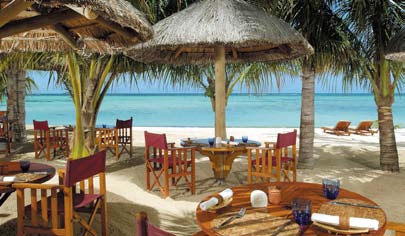
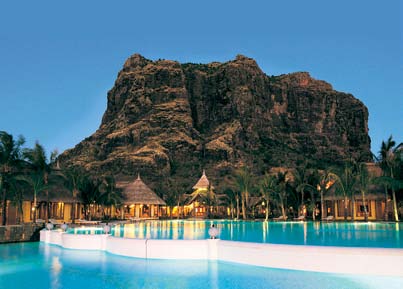
I like the definition of luxury pertaining to hotels in Mauritius as reported by an analyst of a fund manager of Anglo Mauritius financial services (AMFS).
Quote
We were invited to the NMHL analyst meeting at Dinarobin hotel in Le Morne. So have you ever wondered what two finance maniacs discuss from Port-Louis to Le Morne? After our usual rant of the length of the journey we started to wonder why they organized this meeting at Le Morne. Obviously the aim was for us to visit the revamped luxury hotel at a cost of Mur 200 m. A series of questions barged into our mind. Why such a massive amount? What is Luxury?How is it determined? How is the demand created?
We are sure that the many stockbrokers present have already forwarded you the outcome of the meeting in terms of financial and outlook as prescribed by NMHL’s management but we aim to provide you something different including some sometimes under-rated aspect of the hospitality business by financiers.
Here is a synthesis of our thoughts and visit:
There are no precise definitions of luxury. In fact, the least that we can say is that Luxury definitions are blurring. Luxury comes in many guises and defining a luxury hotel is challenging. As in the past, luxury is constantly evolving and means different things to different people. For some it may be a hotel offering simplicity, privacy and spiritual well being whereas for others it may be 24-hour butler service or a personal shopper. Needs may differ according to the nature and purpose of the trip, the origin of the guest and the location of the hotel.To add to the confusion, some operators have taken to calling themselves ‘7 star’ to imply an Uber luxury product. Even at the high end though there are varying degrees of luxury. This means that Luxury is a moving target. There are only a few who really have the “Midas†touch to spot these trends and exploit them. NMHL has a demonstrable past success in this endeavour. Overall, luxury is generally regarded as a combination of facilities and style and something you don’t normally experience at home.
Demand drivers- Motivation for buying luxury goods in general
Clearly the demand drivers for luxury hotels varies with the type of property and is influenced by factors such as location and whether the hotel is an urban, resort or destination property, on the size, style, on-site facilities and so on. But why do consumers buy luxury goods and services? Five main reasons are:
1.     ‘Treat factor’
2. Â Â Â Â Perceptions of luxury delivering better quality
3. Â Â Â Â Brand image (especially important for younger consumers)
4. Â Â Â Â Self indulgence
5.     ‘Showing off’ – this typically lead to marketing via word of mouth
In Dinarobin….
We were tour guided in the hotel where we saw a stunning hotel that really made a good use of a breath-taking site, in particular the Le Morne peninsula. During our tour visit, we saw the famous Clarins brand. Here we realize one important reality of the hospitality businesses in Mauritius: Consumers value spas. Many luxury hotel companies are pursuing out-of-room revenue growth opportunities, including potential food and beverage outlets and spa growth opportunities in specific properties. Increased awareness of spa experiences as rejuvenation exercises, diversification of spa products to include hiking, yoga, dance classes and other multi-generational products, increasing level of branding within the spa industry in hotels and increasing disposable incomes, are some of the factors that will drive the spa component growth in hotels in future years. Those we spoke to agreed that a spa is an essential facility and revenue generator, not just added as a differentiator. Dinarobin has annexed sauna as well as hammam to complete the pleiade of services offered. We also saw the joint golf course between Dinarobin and Paradis as a massive differentiator.
At the end of the tour, we realized that the main aspect of NMHL is that it owns trophy assets located in prime spots. This explains the ability of NMHL to preserve its pricing power even at the time of crisis. NMHL has not barged into cutthroat competition. This we believe showed into the financials.
But in view of the recent world economic plague, is this stock undervalued? Are there better opportunities ahead? How will the forex environment develop? What is the state of barriers to entry? Should you invest your total savings in the name? At what time should you buy it if yes?
At AMFS we have a team of committed and experienced professionals with their minds constantly directed towards finding solutions to these dilemmas. Our expertise range from strong fundamental and technical analysis with the aim to add value to the portfolio we manage. We study business in-depth. It is something that we are passionate about.
Un quote
An NLP practiotioner would ask you: “what do you mean by a luxury hotel? Please specify the term luxury?”
September 7th, 2009 — Chinois, Mauritius, People

I was delighted to attend the 33th anniversary celebrations of HUALIEN club at Trianon. It crossed my mind that the present President Chan Sun may not have been born when the club was formed or was just a toddler then,and I rejoice that the 33year old organisation is having a new youth with this new generation of active members. Perhaps more significantly, on the celebration day the new website was presented and a master plan for the future development was revealed by the younger generations.
I went through the new website built by Joel Wan Chow Wah, single handedly, and was pleased to see a number of interesting features namely: ‘The Sino Mauritian’ and the ‘Cultural resources’. However I think that the Mission & Aims of HUALIEN club could have been more prominent. The purpose & usefulness of the club can be found in reading through its ‘History’ and story behind the ‘birth of the club’.
I would eagerly wish that the website become an interactive one. Not only could the website be an information diffusing vehicle of the club but also become a place where members can interact with the club and amongst themselves in the virtual world.
Today, I congratulated Joseph Tsang Man Kin for his contribution to the cultural pages shown on the website. Surprise! By returned email, he told me that he did not know that he featured thereon.
All told, I am proud to belong to the club. I have to congratulate the founder members for their vision. My gratitude also goes to all the Past Presidents and their respective committees who through the years have maintain the spirit and have through much struggle built up this wonderful 9 arpents infra-structure which will benefits the future generations.
Long live HUALIEN! Long live the Sino Mauritian Community! Long live Multi- ethnic Mauritius!
August 29th, 2009 — Entrepreneurship, Environment, Mauritius
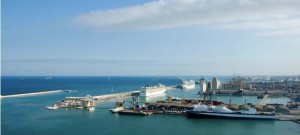
The last time I was in Barcelona to join a Cruise, I was amazed by the Cruise terminal and the set up of the Port Terminal. Since traveling to the less prosperous countries of South America, I had the opportunity of using and testing more modest facilities.
In the Indian Ocean region, whilst Mauritius is the star Tourist destination, is it possible to build up Port Louis to be the main hub of Cruise liners by setting up the appropriate facilities?
With the improving technologies with the latest cruise ships, the ride could be as calm as in the Caribbean region. The Indian Ocean of our region would well be developed into a cruise ocean. This could well be a regional project spearheaded by ‘Commission de L’Ocean Indien.’ Adequate part facilities could be coordinated to be ready to allow cruises to operate in Mauritius, Reunion, Comoros, and ports of Madagascar.
One could very easily image the ripple effects that Cruise liners have on the economy of the countries?
We just need to have the vision and to go for it. Let us hope the right quarters can hear my plead.
August 6th, 2009 — Caritas, Entrepreneurship, learning, Mauritius
I took much pleasure in reading the second edition of the Caritas Newsletter August 2009.
What most interested me was to learn of the Caritas partnership with the government with Life Skills management and the Second chance programme.
Jean Claude de l’Estrac who was chairing the National Empowerment program re-oriented the program to start building the self esteem of the needy before training them for a job. He assesed that the original program was not yielding the results planned because of the lack of confidence of the poor of the poorest. The society has ignored them for too long, they have lost the sense of being a worthy human. Let us hope that Caritas and all those working in this field have now found the good thread!
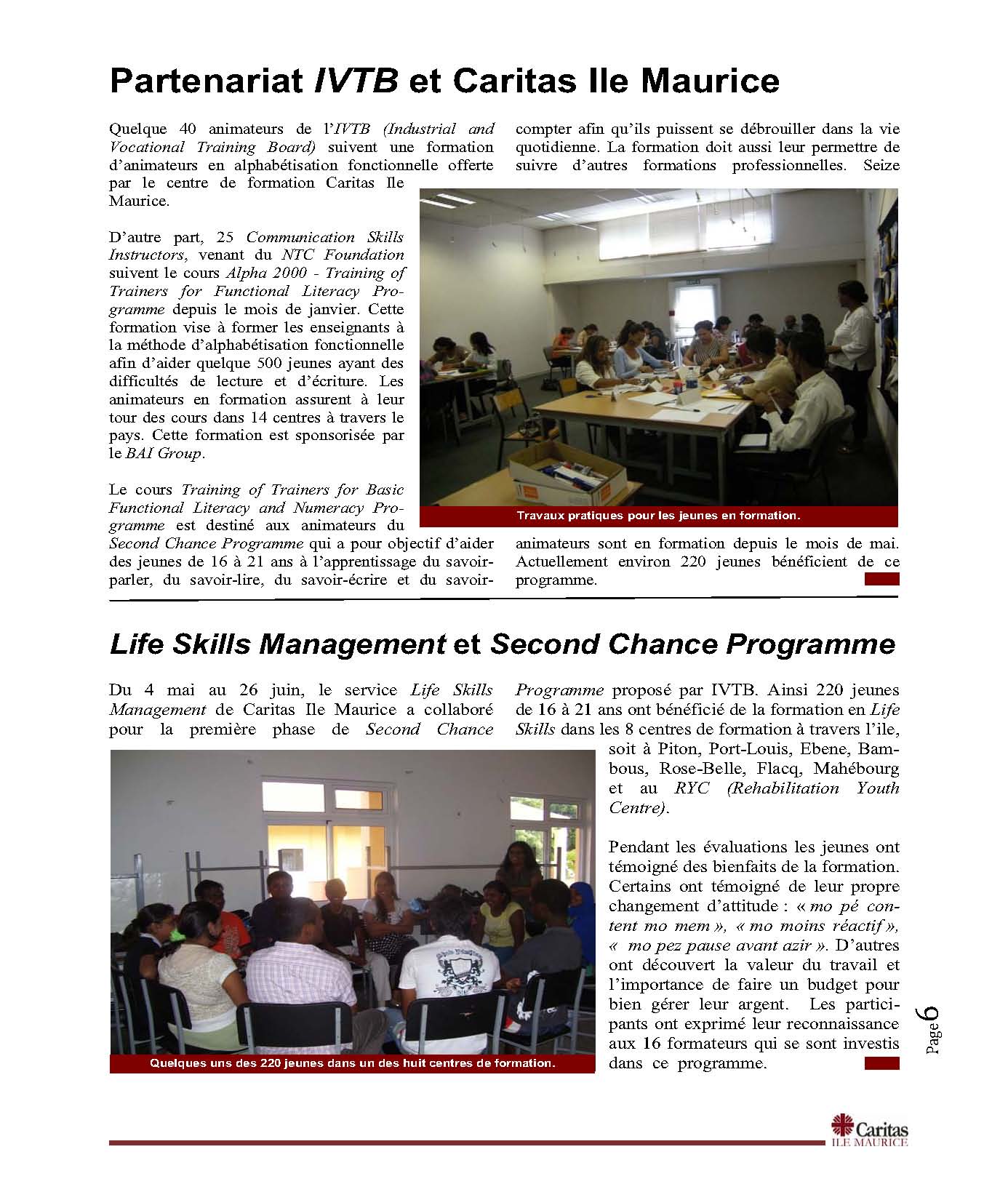
August 3rd, 2009 — Uncategorized
I had a lovely Sunday reading and watching videos on the Brain and the revolutionary science of neuroplasticity. The subject is of special interest to me as I suffered from brain damage after my two strokes.
For centuries the human brain has been thought of as incapable of fundamental change. People suffering from neurological defects, brain damage or strokes were usually written-off as hopeless cases. But recent and continuing research into the human brain is radically changing how we look at the potential for neurological recovery.
The human brain, as we are now quickly learning, has a remarkable ability to change itself – in fact, even to rewire itself.
Dr. Norman Doidge travels across North America to meet some of the pioneering researchers who made revolutionary discoveries about the plasticity of the human brain. He also visits with the people who have been most affected by this research – the patients whose lives have been forever changed – people once thought of as incurable who are now living normal lives.
My brother gave me the link to the different sites and videos to watch there on. Would that be a chance to better my lot? I am hopeful.
August 2nd, 2009 — Uncategorized
Jn 6,24-35.
La foule s’était aperçue que Jésus n’était pas là , ni ses disciples non
plus. Alors les gens prirent les barques et se dirigèrent vers Capharnaüm Ã
la recherche de Jésus.
L’ayant trouvé sur l’autre rive, ils lui dirent : « Rabbi, quand es-tu
arrivé ici ? »
Jésus leur répondit : « Amen, amen, je vous le dis : vous me cherchez, non
parce que vous avez vu des signes, mais parce que vous avez mangé du pain
et que vous avez été rassasiés.
Ne travaillez pas pour la nourriture qui se perd, mais pour la nourriture
qui se garde jusque dans la vie éternelle, celle que vous donnera le Fils
de l’homme, lui que Dieu, le Père, a marqué de son empreinte. »
Ils lui dirent alors : « Que faut-il faire pour travailler aux oeuvres de
Dieu ? » Jésus leur répondit :
« L’oeuvre de Dieu, c’est que vous croyiez en celui qu’il a envoyé. »
Ils lui dirent alors : « Quel signe vas-tu accomplir pour que nous
puissions le voir, et te croire ? Quelle oeuvre vas-tu faire ?
Au désert, nos pères ont mangé la manne ; comme dit l’Écriture : Il leur a
donné à manger le pain venu du ciel. »
Jésus leur répondit : « Amen, amen, je vous le dis : ce n’est pas Moïse qui
vous a donné le pain venu du ciel ; c’est mon Père qui vous donne le vrai
pain venu du ciel.
Le pain de Dieu, c’est celui qui descend du ciel et qui donne la vie au
monde. »
Ils lui dirent alors : « Seigneur, donne-nous de ce pain-là , toujours. »
Jésus leur répondit : « Moi, je suis le pain de la vie. Celui qui vient Ã
moi n’aura plus jamais faim ; celui qui croit en moi n’aura plus jamais
soif.
========================================================================
Nous, les hommes, sommes de d’êtres physique, mental, social et spirituel. Chaque dimension nommée est à être maintenue, entretenue et développée pour nous garder en état de vie. Je comprends que j’ai un besoin de me nourrir mais quid des autres dimensions ? Que veux dire maintenir mon mental, social et spirituel ?
Si j’arrête d’utiliser mes neurones ma cervelle se rétrécît et je deviens un légume n’est ce pas. Ainsi pour le social, l’interaction et les échanges avec les autres me maintient et me développe.
Tout comme tout homme a besoin de se nourrir physiquement, socialement, mentalement, pour continuer de rester en vie, nous avons également besoin de nous nourrir spirituellement. Que veux dire une nourriture spirituelle ? Un être spirituel est un être qui pense et vit au delà de sa matière d’homme. Dans ce massage de St Jean, ce matin, ‘le pain de vie’ est la nourriture spirituelle proposée par Jésus. Consommer le corps et le sang du Christ c’est ainsi se nourrir de son essence pour être en communion avec Lui, pour être transformé par Lui, pour s’abandonner à Lui, de Lui laisser vivre en nous pour en devenir comme Lui.
Je prends conscience de ce cadeau que Toi, Seigneur Christ mon Sauveur m’a laissé et aussi à toute l’humanité, ce Jeudi Saint à la Cène. Tu seras avec nous jusqu’à la fin des temps et Tu continues à nous nourrir. Comme un cercle vertueux, plus je crois en Ta présence omniprésente et Ton essence dans l’Hostie que je consomme, plus que ma foi et ma croyance en Toi grandit. N’est ce pas merveilleux ! Tout vient de toi Seigneur Dieu. Tu me demandes une infime petite initiative volontaire de penser à Toi et de croire en Toi et Tout sera fait. Amen
August 1st, 2009 — Uncategorized
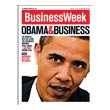
Moving from ‘yes we can’ to ‘yes we do’ would be the cry of American businesses when discussing with President Obama.
It is only six months that Obama is in charge. He inherited a hefty burden, the state of the American economy was at its biggest lull as well as the state of the world economy was as it low. ‘It does take time to steer a large and heavy ship’ some may say.
So far has the Obama’s administration performed satisfactory for the business? I take great pleasure in reading the coming issue of Business week that it is dedicated to Obama & business.
July 28th, 2009 — Uncategorized
Barack Obama has delivered his first speech in sub-Saharan Africa as US President, stressing Africa’s importance for the world, the vital role of governance and the challenges of conflict and corruption. Here are key excerpt from the address to parliament in the Ghanaian capital Accra on 11 July 2009.
I was busy attending to pressing family matters when Obama gave his African directed speech. On the suggestion of one of my regular blog reader, you will find in blue print the questions suggested by me to the topics raised.
Reading through his speech gave me the opportunity to evaluate the position of Mauritius in respect to the points he raised.
ON AFRICA’S IMPORTANCE
I do not see the countries and peoples of Africa as a world apart; I see Africa as a fundamental part of our interconnected world – as partners with America on behalf of the future that we want for all our children.
ON COLONIALISM AND RESPONSIBILITY
It is easy to point fingers, and to pin the blame for these problems on others. Yes, a colonial map that made little sense bred conflict, and the West has often approached Africa as a patron, rather than a partner. But the West is not responsible for the destruction of the Zimbabwean economy over the last decade, or wars in which children are enlisted as combatants.
In my father’s life, it was partly tribalism and patronage in an independent Kenya that for a long stretch derailed his career, and we know that this kind of corruption is a daily fact of life for far too many.
ON GOVERNANCE
Development depends upon good governance. That is the ingredient which has been missing in far too many places, for far too long. That is the change that can unlock Africa’s potential. And that is a responsibility that can only be met by Africans.
How is Mauritius doing on Governance? Inadequate would be a fair answer. Better transparency from both authorities and the private corporate bodies.
ON CORRUPTION
Repression takes many forms, and too many nations are plagued by problems that condemn their people to poverty. No country is going to create wealth if its leaders exploit the economy to enrich themselves, or police can be bought off by drug traffickers… No person wants to live in a society where the rule of law gives way to the rule of brutality and bribery. That is not democracy, that is tyranny, and now is the time for it to end. … Africa doesn’t need strongmen, it needs strong institutions.
How does Mauritius fare on Corruption? Much has to be achieved. I sense without proof that petty corruption is still practiced and the mentality has not progressed much either on the part of the recipient of the bribe or the payer. Recently I was discussing on this issue with an old friend based in Singapore. He told me that Mauritius  is still reputed amongst the Singapore corporate environment as a corrupt country, a 20% cut of project has to be inbuilt.
ON AID
As Africans reach for this promise, America will be more responsible in extending our hand. By cutting costs that go to Western consultants and administration, we will put more resources in the hands of those who need it, while training people to do more for themselves. That is why our $3.5bn food security initiative is focused on new methods and technologies for farmers – not simply sending American producers or goods to Africa. Aid is not an end in itself. The purpose of foreign assistance must be creating the conditions where it is no longer needed.
Do you in Mauritius use aid to build out capacity to do without it in the future?
ON HEALTH
Yet because of incentives – often provided by donor nations – many African doctors and nurses understandably go overseas, or work for programs that focus on a single disease. This creates gaps in primary care and basic prevention. Meanwhile, individual Africans also have to make responsible choices that prevent the spread of disease, while promoting public health in their communities and countries.
How serious is the case of Mauritius in preventing spread of disease and for making worthwhile our trained nurses to stay and work in our country? I would like to know that is the % of the budget of the Ministry of Health is dedicated to prevention? Are we treating our doctors and nurses correctly and fairly for them to pledge their service to the nation?
ON CONFLICT
Now let me be clear: Africa is not the crude caricature of a continent at war. But for far too many Africans, conflict is a part of life, as constant as the sun. There are wars over land and wars over resources. And it is still far too easy for those without conscience to manipulate whole communities into fighting among faiths and tribes.
These conflicts are a millstone around Africa’s neck. We all have many identities – of tribe and ethnicity; of religion and nationality. But defining oneself in opposition to someone who belongs to a different tribe, or who worships a different prophet, has no place in the 21st Century. Africa’s diversity should be a source of strength, not a cause for division.
How are we in Mauritius attending to harmonious living between the different socio-cultural groups ? I sense much underground conflict. Is meritocracy overruling the balancing of ethnic groups in nomination to jobs?






